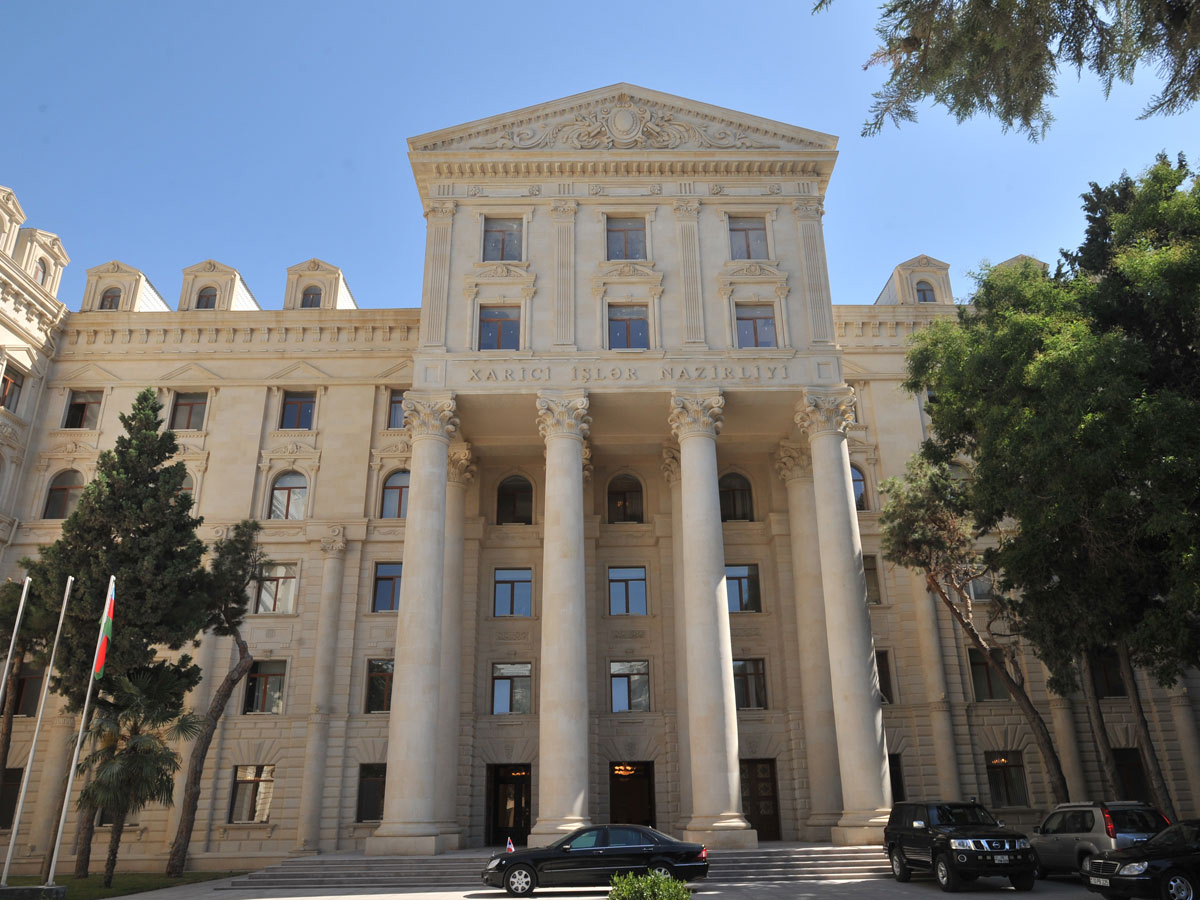Baku, Azerbaijan, Aug. 27
Trend:
On August 27, Armenian Foreign Minister Zohrab Mnatsakanyan, speaking to the heads of the central apparatus of the Foreign Ministry, diplomatic and consular missions of the country, allowed himself verbal attacks on Azerbaijan, which are far from reality and do not correspond to the essence of the negotiations, Trend reports referring to the press service of Azerbaijan’s Foreign Ministry.
“In this regard, I would like to reiterate that Nagorno-Karabakh was, is and will be an integral part of Azerbaijan,” said the report. “The entire world community recognizes this fact, and unequivocally condemns the occupation of the Azerbaijani territories by Armenia. There is no 'people of Nagorno-Karabakh' concept, there are Armenian and Azerbaijani communities of this region of Azerbaijan.”
The document reads that the internationally accepted model for the settlement of the Armenia-Azerbaijan Nagorno-Karabakh conflict is based on the norms and principles of international law, the corresponding decisions of the UN, OSCE and other international organizations, primarily the four known UN Security Council resolutions.
“Concrete steps as part of the peaceful settlement were proposed by the co-chairs of the OSCE Minsk Group and repeatedly voiced by them, including in their latest statement March 9 this year,” said the report.
The ministry notes that Azerbaijan, as a multi-ethnic state with an internationally recognized multicultural society, cannot be compared in any way with mono-ethnic Armenia, which expelled the entire Azerbaijani population from its original lands, where this country is now located, and, moreover, committed horrible ethnic cleansings in the occupied Azerbaijani territories, the culmination of which was the Khojaly tragedy.
“The attempts by the Armenian foreign minister to somehow justify the aggressive intentions of his country, referring to the right of the people to self-determination, which implies the free expression of the will of citizens, are in no way consistent with international law or common sense,” the Azerbaijani Foreign Ministry said. “It is impossible to advocate for the realization of the rights of a part of the population of any territory, completely violating the rights of its other part.”
The rights of the Azerbaijani community of the Nagorno-Karabakh region of Azerbaijan, now under the occupation of the Armenian Armed Forces, were violated en masse as a result of the aggression of Armenia against Azerbaijan, the report says.
“Only after the restoration of the fundamental rights of the Azerbaijani community of the Nagorno-Karabakh region of Azerbaijan to safe return to their homes and decent living there, it will be possible to specifically discuss the forms of exercising the rights of residents of the region to self-government,” reads the report.
As noted in the document, the latest statement by the Armenian foreign minister, aimed at an internal audience, is fraught with a very dangerous trend of escalation of the conflict, rather than its peaceful resolution, which Mnatsakanyan allegedly desires so much.
“Armenia should decide: Does it want peace or escalation?! One gets the impression that the current Armenian leadership is consciously inclined to escalate the conflict, rather than to resolve it,” the Azerbaijani Foreign Ministry said. “Unfortunately, we have to admit that Yerevan is guided by annexationist positions rather than those related to reality. However, in any situation, it is obvious that Azerbaijan will never reconcile with the existing status quo of occupation. Our patience has its limits.”
The conflict between the two South Caucasus countries began in 1988 when Armenia made territorial claims against Azerbaijan. As a result of the ensuing war, Armenian armed forces occupied 20 percent of Azerbaijan, including the Nagorno-Karabakh region and seven surrounding districts.
The 1994 ceasefire agreement was followed by peace negotiations. Armenia has not yet implemented four UN Security Council resolutions on withdrawal of its armed forces from Nagorno-Karabakh and the surrounding districts.






